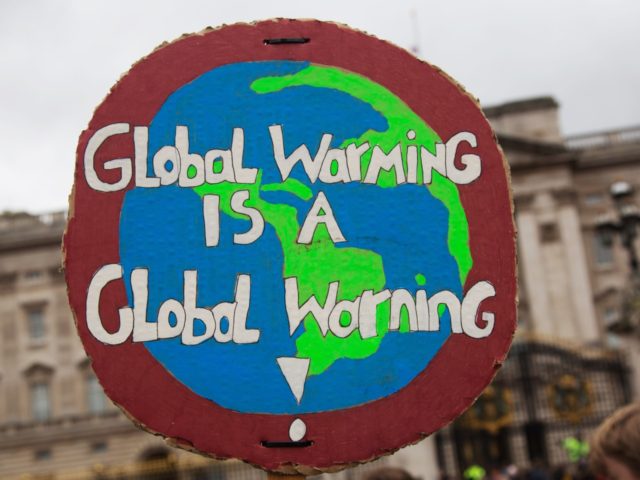“Ireland is heading for a climate change apocalypse come 2050 if we don’t implement massive changes,” claimed Emma McMenamy on Saturday in the Irish Mirror.
Due to “catastrophic shifts to the weather, agriculture and even the habitability of some areas,” Ms. McMenamy warns, we can expect “the end of civilization as we know it within the next three decades.”
In its cataclysmic predictions, the article makes the crucial error of conflating climate change with pollution as if the two were the same thing, or even related.
Ms. McMenamy cites a United Nations warning that millions of people will die before their time due to water and air pollution by 2050. Air pollution from burning fuels such as wood, coal, and kerosene for cooking, heating and lighting will result in “roughly seven million deaths each year,” she says. Meanwhile, 1.5 million people will die each year from diseases related to drinking polluted water caused by chemicals, the U.N. claimed.
As plausible as this may be, it has nothing whatsoever to do with climate change or carbon dioxide emissions.
As the Lancet medical journal noted in 2017, pollution-related diseases are responsible for millions of premature deaths each year, or some 15 times more than from all wars and other forms of violence combined.
Pollution is not only the largest environmental cause of disease and premature death in the world today, the journal found, but diseases caused by pollution were responsible for roughly 16 percent of all deaths worldwide—“three times more deaths than from AIDS, tuberculosis, and malaria combined and 15 times more than from all wars and other forms of violence.”
As of this writing, there has not been a single documented case of a person being killed by carbon dioxide related “global warming,” whereas real pollution of air, water, and land is killing an average of 25,000 people every day across the globe.
Although environmental Green activists like to talk of “carbon pollution,” in point of fact carbon dioxide (CO2) is not a pollutant at all. CO2 is colorless, odorless and completely non-toxic. Plants depend on it to live and grow, and human beings draw some into their lungs with every breath they take.
Growers regularly pump CO2 into greenhouses, raising levels to three times that of the natural environment, to produce stronger, greener, healthier plants.
Moreover, current levels of carbon dioxide concentration in the environment are substantially lower than they have been during earlier periods in the planet’s history. Without human intervention, the concentration of CO2 has climbed as high as 7,000 parts per million (ppm) in prior eras, whereas at present the concentration is just over 400 ppm.
While environmentalists point to the 2016 Paris Climate Accord as the solution to the world’s ecological woes, the 27-page text does not even mention the real evils of air or water pollution, preferring to focus exclusively on carbon dioxide.
Meanwhile, some experts on the environment, such as U.N. climate scientist Dr. Indur Goklany, have defended rising CO2 levels as a good thing for humanity. Goklany contends that the rising level of carbon dioxide in the earth’s atmosphere “is currently net beneficial for both humanity and the biosphere generally.”
“The benefits are real, whereas the costs of warming are uncertain,” he said.
None of this deters Ms. McMenamy in her ill-conceived crusade against climate change.
Unless “drastic action” is taken against global warming now, humanity will face an environmental catastrophe of epic proportions, she warns, including the displacement of “a billion people.”
As part of this momentous displacement, Ms. McMenamy warns of a “mass exodus” of people from cities like Hong Kong — a curious assertion when Hong Kong’s population is currently rising on a daily basis.
Judging from McMenamy’s mishandling of even the most basic facts regarding the environment, readers can be forgiven for taking her dire predictions concerning Ireland’s future as so much blarney.

COMMENTS
Please let us know if you're having issues with commenting.